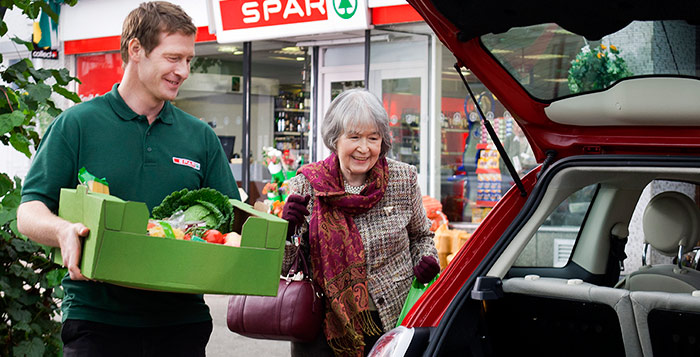According to the 2013 Local Shop Report, almost 60% of c‑stores are 1,000sq ft or smaller – and the number is growing 5% year on year.
Confirming this trend, Nisa CEO Neil Turton says that 70% of the group’s recent recruits are smaller than 1,500sq ft. “We now have plans for a smaller format for shops less than 1,000sq ft,” he adds.
“With the multiples reaching saturation point with 1,500 to 3,000sq ft stores, it’s no wonder they’re looking at smaller stores to grow numbers,” says Stuart Johnson, retail controller for Landmark Wholesale.
But how important are small stores to the future of symbol groups – and what do they mean for wholesalers?
Retailer viewpoint:
“Our store is just 235sq ft but takes up to £10k a week. Business is booming thanks to the extra services we offer, particularly Collect+ and PayPoint. We put a friendly face to these services and they help us to increase our reach with customers.”
Raj Dillion, Westcombe Food and Wine, Westcombe Park, South-east London
For Landmark, small stores are vital to the Lifestyle Express estate, with around two‑thirds of its stores less than 1,000sq feet, and the average store 800sq ft.
“All our resources, support, promotions and recommended core ranges are geared towards stores this size,” says Johnson. “We believe that the smaller the store, the more essential it is to get the range of products exactly right. There is no space for slow-moving products and we want to boost the profit potential of every square foot.”
James Hall, group director of symbol at Bestway, says one of the reasons small stores can be so successful is their reaction speed and flexibility. “Some of our smallest Best-one members are turning over more than £30,000 per week and this is partly because they can get products on shelves much quicker than the larger stores can.
“The impact on us as a wholesaler is that we have taken control of our chilled and fresh distribution to retailers, with single units accounting for 83% of all Bestway Direct chilled sales,” he says. This allows Best-one retailers to sell chilled at full value rather than discount as the sell-by date approaches.
Spar has helped its smaller retailers reduce space in certain categories without losing sales, says Mark Steven, the company’s business development controller.
“In some of our smaller stores, we have significantly reduced the space allocated to categories such as confectionery, crisps and snacks while growing the category sales.
“Wholesalers can help small stores by showing them how to do this,” he says.
Regular deliveries are one of the best ways wholesalers can support small stores, says Bintesh Amin of Blean Village Londis in Kent: “We have smaller stockrooms so we have to get regular deliveries from our wholesalers so we don’t run out of stock. I get six deliveries a week.”
And for Jai Singh, who operates the 700sq ft Singh’s Premier in Sheffield, it’s important wholesalers take prices into account: “Buying stock at the right price or on promotion from a wholesaler is much more important to a small store than a large one.
“Prices at the cash & carry often fluctuate so we have to be careful and have our wits about us. If we don’t buy new products at the right prices, it will count for nothing,” he says.



Comments
This article doesn't have any comments yet, be the first!